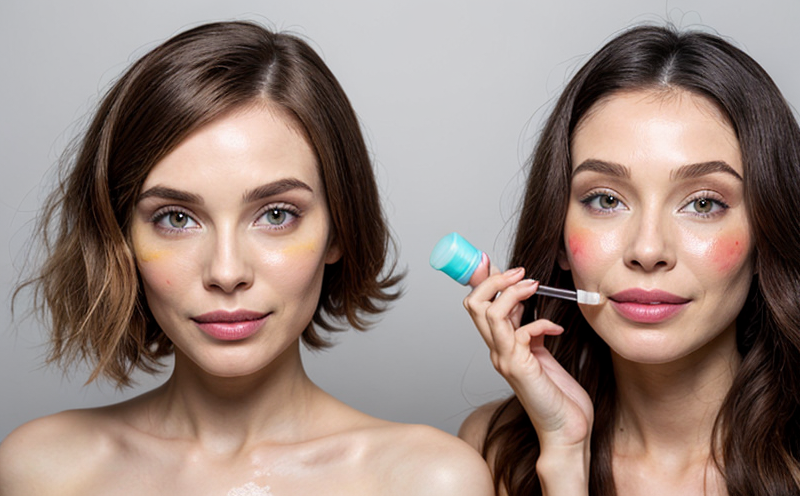Adulteration Detection in Botanical Cosmetic Ingredients
In today's rapidly evolving cosmetic industry, the demand for natural and organic products has surged. However, with this growth comes a significant challenge: ensuring that the botanical ingredients used are genuine and free from adulteration. Adulteration can undermine product efficacy, mislead consumers about the product’s purity, and even pose health risks if certain contaminants are present.
At Eurolab, our advanced analytical techniques focus on detecting adulterations in botanical cosmetic ingredients. We use state-of-the-art instrumentation such as High-Performance Liquid Chromatography (HPLC), Gas Chromatography-Mass Spectrometry (GC-MS), and Near-Infrared Spectroscopy (NIRS) to identify any signs of contamination or substitution.
Our process begins with the careful selection and preparation of samples. This involves grinding, sieving, and drying botanical extracts before they undergo thorough analysis. Our team ensures that each sample is representative of the batch it represents, minimizing the risk of false positives or negatives.
The testing methods we employ are based on international standards such as ISO 17025 for proficiency in laboratory operations and ASTM F836-14 for cosmetic ingredient specifications. These standards ensure that our results are reliable, repeatable, and widely accepted by industry stakeholders.
Identifying adulterations is crucial not only from a regulatory perspective but also from an ethical standpoint. Consumers expect transparency regarding the ingredients in their products, and ensuring authenticity helps maintain trust within the market. Regulatory bodies such as the European Commission’s Cosmetics Regulation (EC 1223/2009) and the FDA’s Code of Federal Regulations provide stringent guidelines that we strictly adhere to.
We also offer comprehensive analysis for potential contaminants, including heavy metals like lead, arsenic, and mercury. These elements are not only toxic but can also affect cosmetic stability and shelf life. By using advanced detection techniques, we ensure that our clients’ products meet the highest safety standards.
Our services extend beyond mere identification; they encompass a holistic approach to quality assurance. We provide detailed reports that outline every step of the analytical process, including sample preparation, instrumental analysis, and data interpretation. This transparency is invaluable for regulatory compliance and internal quality control processes.
To further support our clients in maintaining product integrity, we offer consultation services tailored to their specific needs. Our experts can help design custom testing protocols that align with individual product formulations or market requirements.
Why It Matters
The importance of detecting adulterations in botanical cosmetic ingredients cannot be overstated. Adulteration can lead to several critical issues:
- Consumer Trust: Consumers have a right to expect that the products they purchase are what is advertised. If adulteration is detected, it can significantly damage brand reputation and consumer confidence.
- Regulatory Compliance: Non-compliance with regulatory standards could result in fines, product recalls, or even legal action. Ensuring that botanical ingredients meet rigorous testing criteria helps prevent such issues.
- Product Quality: Adulterated ingredients can compromise the overall quality of a cosmetic product, affecting its efficacy and safety. This is especially concerning for natural and organic products where purity is paramount.
In summary, detecting adulterations in botanical cosmetic ingredients is not just about meeting legal requirements; it’s also about maintaining ethical standards that benefit both the manufacturer and the end consumer.
Eurolab Advantages
At Eurolab, we pride ourselves on offering unparalleled expertise in botanical cosmetic ingredient analysis. Our advantages include:
- State-of-the-Art Facilities: Equipped with the latest analytical instrumentation, our laboratory ensures precise and accurate results.
- Comprehensive Testing Protocols: We provide a full range of tests to cover all potential adulterations, including chemical, microbiological, and physical analyses.
- International Standards Compliance: Our methodologies are aligned with international standards such as ISO 17025, ensuring consistent and reliable results.
- Expert Consultation: Our team of experts offers guidance on how to optimize ingredient sourcing and formulation processes to avoid adulterations.
Environmental and Sustainability Contributions
Detecting adulterations in botanical cosmetic ingredients supports several environmental and sustainability goals:
- Ethical Sourcing: By ensuring that only genuine and sustainable ingredients are used, we contribute to responsible sourcing practices.
- Reduced Waste: Our thorough testing ensures that only high-quality botanicals are processed, minimizing the waste generated from inferior or adulterated materials.
- Energy Efficiency: The advanced instruments and efficient processes we use help minimize energy consumption during analysis.





